
Wish Wynne (1882-1931) was a British music hall performer and radio actress. [1]

Wish Wynne (1882-1931) was a British music hall performer and radio actress. [1]
Wish Wynne was born Ethel Constance Eliza Gilchrist in Croydon on 19 February 1879 [2] of Irish parents. She made her first stage appearance aged 12 in the pantomime Dick Whittington at Drury Lane. She subsequently became a music hall act, with character songs and comic monologues which she accompanied herself on the piano. [1] In 1910 Wynne made her American debut, and she returned to tour there in 1912. [3] E. V. Lucas, writing in the Pall Mall Gazette in 1911, praised Wynne as "a new variety of singer" and "a performer whose every word is of value". [4] [5]
Wynne made her West End acting debut as Janet Cannot in Arnold Bennett's The Great Adventure , produced by Granville Barker. The play opened in March 1913 and enjoyed a successful run until November 1914. [6] Bennett referred to Wynne in his journal as a "genius". [7] She was profiled as "Wish Wynne: The Hit of the London Season" in Nash's Magazine for August 1913. [4]
For the next decade, Wynne divided her time between the music hall and the theatre, touring South Africa, Australia, the United States and South America. She first broadcast on radio in 1924, for the British Broadcasting Company, and later its successor, the British Broadcasting Corporation, building a popular broadcast reputation for fairy stories told in Cockney dialect. [1] [8]
In 1927, she acted in Double Dan, a farce by Edgar Wallace. [9]
She died in St. Bartholomew's Hospital on 14 November 1931 aged 52. The Times obituarist wrote:
The funeral was held at Kensal Green Cemetery.

Enoch Arnold Bennett was an English author, best known as a novelist, who wrote prolifically. Between the 1890s and the 1930s he completed 34 novels, seven volumes of short stories, 13 plays, and a daily journal totalling more than a million words. He wrote articles and stories for more than 100 newspapers and periodicals, worked in and briefly ran the Ministry of Information during the First World War, and wrote for the cinema in the 1920s. Sales of his books were substantial, and he was the most financially successful British author of his day.
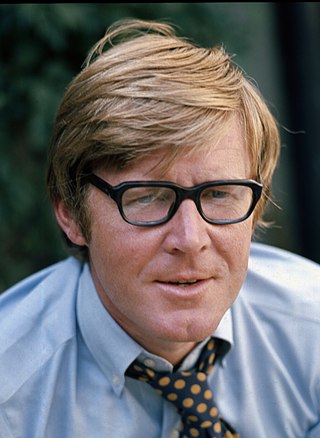
Alan Bennett is an English actor, author, playwright and screenwriter. He has received numerous awards and honours including two BAFTA Awards, four Laurence Olivier Awards, and two Tony Awards. In 2005 he received the Society of London Theatre Special Award.

Music hall is a type of British theatrical entertainment that was most popular from the early Victorian era, beginning around 1850, through the Great War. It faded away after 1918 as the halls rebranded their entertainment as variety. Perceptions of a distinction in Britain between bold and scandalous music hall entertainment and subsequent, more respectable variety entertainment differ. Music hall involved a mixture of popular songs, comedy, speciality acts, and variety entertainment. The term is derived from a type of theatre or venue in which such entertainment took place. In North America vaudeville was in some ways analogous to British music hall, featuring rousing songs and comic acts.

Alexandra Elene MacLean Denny was an English singer-songwriter who was lead singer of the British folk rock band Fairport Convention. She has been described as "the pre-eminent British folk rock singer".
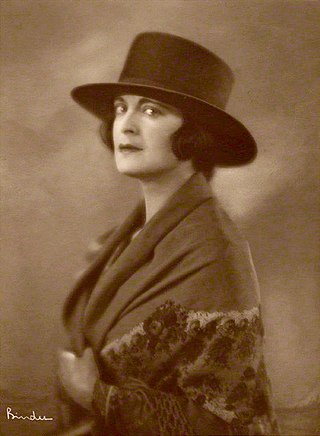
Harriet Pearl Alice Cohen CBE was a British pianist.

Matilda Alice Victoria Wood, professionally known as Marie Lloyd, was an English music hall singer, comedian and musical theatre actress. She was best known for her performances of songs such as "The Boy I Love Is Up in the Gallery", "My Old Man " and "Oh Mr Porter What Shall I Do". She received both criticism and praise for her use of innuendo and double entendre during her performances, but enjoyed a long and prosperous career, during which she was affectionately called the "Queen of the Music Hall".

Vesta Victoria was an English music hall singer and comedian. She was famous for her performances of songs such as "Waiting at the Church" and "Daddy Wouldn't Buy Me a Bow Wow", both of which were written specially for her. Vesta's comic laments delivered in deadpan style were even more popular in the USA: she was, at the beginning of the twentieth century, one of the most successful British entertainers in America.

Evelyn Laye was an English actress and singer known for her performances in operettas and musicals.

Coral Edith Browne was an Australian-American stage and screen actress. Her extensive theatre credits included Broadway productions of Macbeth (1956), The Rehearsal (1963) and The Right Honourable Gentleman (1965). She won the 1984 BAFTA TV Award for Best Actress for the BBC TV film An Englishman Abroad (1983). Her film appearances included Auntie Mame (1958), The Killing of Sister George (1968), The Ruling Class (1972) and Dreamchild (1985). She was actor Vincent Price's third wife.

Betty Astell, born Betty Julia Hymans, was an English actress, best known for comedy and pantomime productions on stage, screen, and radio with her husband, Cyril Fletcher. She was one of the first performers to appear on television, in experimental broadcasts by the BBC in 1932.
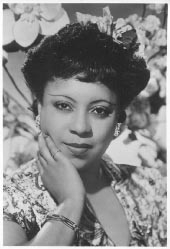
Adelaide Louise Hall was an American-born UK-based jazz singer and entertainer. Her career spanned more than 70 years from 1921 until her death. Early in her career, she was a major figure in the Harlem Renaissance; she became based in the UK after 1938. Hall entered the Guinness Book of World Records in 2003 as the world's most enduring recording artist, having released material over eight consecutive decades. She performed with major artists such as Art Tatum, Ethel Waters, Josephine Baker, Louis Armstrong, Lena Horne, Bill "Bojangles" Robinson, Cab Calloway, Fela Sowande, Rudy Vallee, and Jools Holland, and recorded as a jazz singer with Duke Ellington and with Fats Waller.

Noye's Fludde is a one-act opera by the British composer Benjamin Britten, intended primarily for amateur performers, particularly children. First performed on 18 June 1958 at that year's Aldeburgh Festival, it is based on the 15th-century Chester "mystery" or "miracle" play which recounts the Old Testament story of Noah's Ark. Britten specified that the opera should be staged in churches or large halls, not in a theatre.

Edward Knoblock was a playwright and novelist, originally American and later a naturalised British citizen. He wrote numerous plays, often at the rate of two or three a year, of which the most successful were Kismet (1911) and Milestones. Many of his plays were collaborations, with, among others, Vicki Baum, Beverley Nichols, J. B. Priestley and Vita Sackville-West.
Thomas Bentley was a British film director. He directed 68 films between 1912 and 1941. He directed three films in the early DeForest Phonofilm sound-on-film process, The Man in the Street (1926), The Antidote (1927), and Acci-Dental Treatment (1928).

Fryniwyd Tennyson Jesse Harwood was an English journalist, author and criminologist.
Jane Marian Manning OBE was an English concert and opera soprano, writer on music, and visiting professor at the Royal College of Music. A specialist in contemporary classical music, she was described by one critic as "the irrepressible, incomparable, unstoppable Ms. Manning – life and soul of British contemporary music".

Lydia Bilbrook, sometimes credited as "Bilbrooke", was an English actress whose career spanned four decades, first as a stage performer in the West End, and later in films. She is best known to today's audiences as "Lady Ada Epping" opposite comedian Leon Errol in the Mexican Spitfire movie comedies of the 1940s.
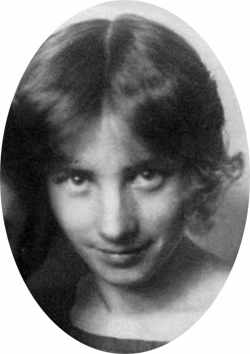
Sophie Adele Wyss was a Swiss soprano who made her career as a concert singer and broadcaster in the UK. She was noted for her performances of French works, many of them new to Britain, for giving the world premieres of Benjamin Britten's orchestral song cycles Our Hunting Fathers (1936) and Les Illuminations (1940), and for encouraging other composers to set English and French texts. Among those who wrote for her were Lennox Berkeley, Arnold Cooke, Roberto Gerhard, Elizabeth Maconchy, Peter Racine Fricker, Alan Rawsthorne and Mátyás Seiber.
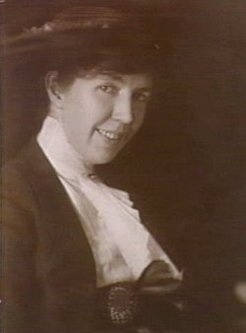
May and Mina Moore were New Zealand-born photographers who made careers as professional photographers, first in Wellington, New Zealand, and later in Sydney and Melbourne, Australia. They are known for their Rembrandt-style portrait photography, and their subjects included famous artists, musicians, and writers of the era.
Joseph Arnold Cave was an English music hall performer, actor and theatre manager. He is credited as the first British banjo player, and as the first to present a minstrel show on the concert stage.